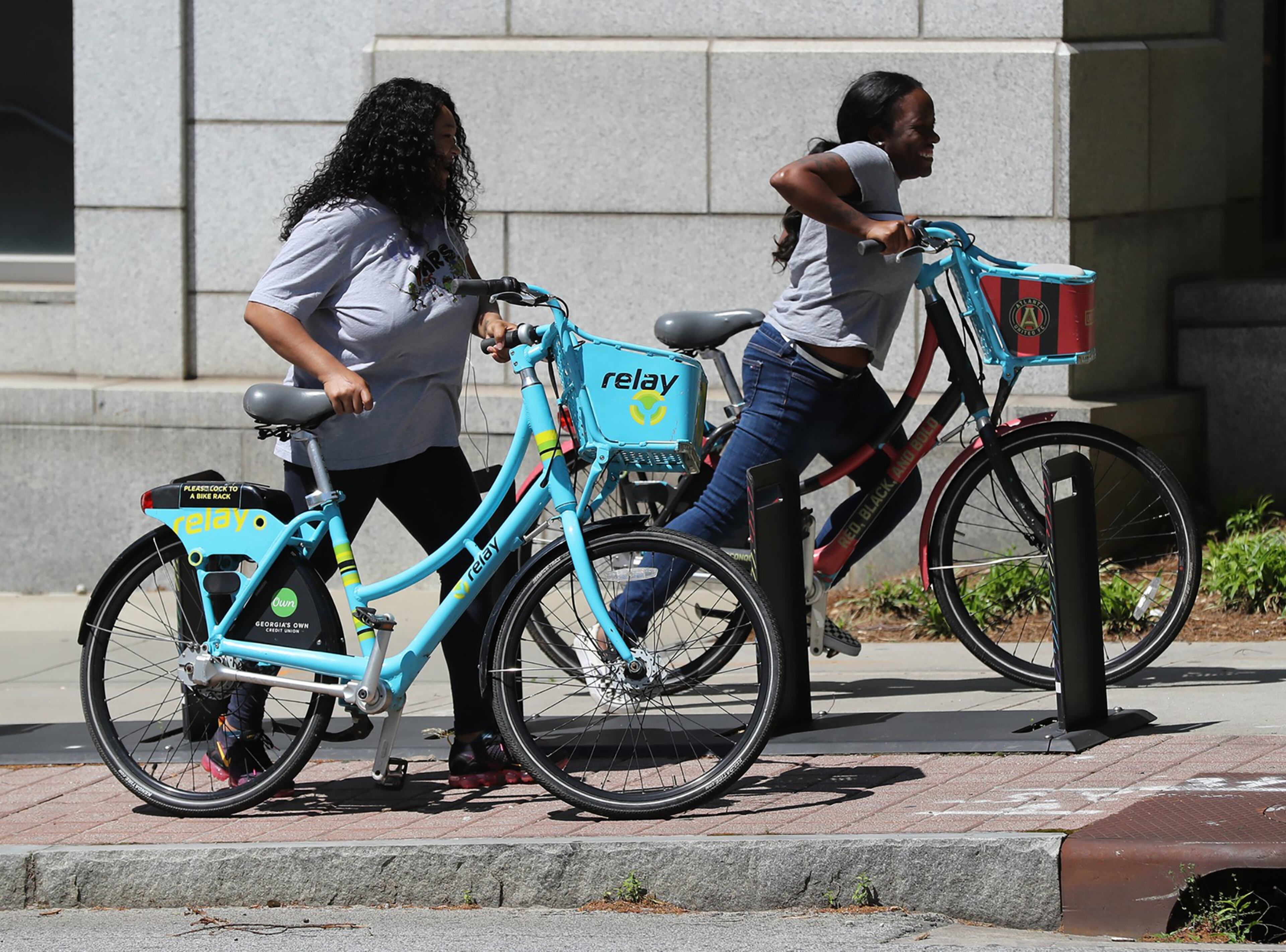Scooters disappear from Atlanta’s sidewalks as coronavirus spreads
On a typical, mild April day, you would normally see Atlanta residents on e-scooters zipping down the Beltline or through Piedmont Park, taking in the spring breeze.
That imagery is a stark contrast from the sidewalks and streets that are now barren of the two-wheeled devices.
Scooter companies were told to remove their devices from city sidewalks after Atlanta’s mayor issued the shelter-in-place order last month. Scooter companies were not deemed one of the “essential businesses” allowed to continue operating, like grocery stores, food delivery, hardware, and construction businesses.
Now, the four scooter companies licensed to do business in the city — Bird, Uber Jump, Boaz, and Wheels — have shut down services in Atlanta and in other major U.S. cities due to the virus outbreak.
Since then, “We have seen a huge decline in scooter use,” a city spokesman said.
RELATED: How much is that scooter trip? Atlantans spent millions to ride in 2019

The electric bike company Relay is still operating in the city, a company customer service representative said.
Atlanta Bicycle Coalition Executive Director Rebecca Serna said the virus has created challenges for those riding lighter vehicles, such as bikes and scooters, that could linger for months.
“There are people who depend on it and don’t have access to personal car or transit,” she said. “And they really are in a bind.” The organization’s mission shifted last year from advocating for bicycle riders to include advocating for other transit needs such as scooters.
For the past year, Atlanta residents and city leaders have complained about scooters left lying in sidewalks and roadways, blocking pedestrians and wheelchair users. At one point, nine companies operated 12,700 devices combined in the city. Despite Atlanta’s efforts to manage the problem, it seems all it took was a widespread coronavirus.
The city's scooter laws and fines had already rushed out some companies operating in the city. In March, the city updated its scooter ordinance and established a new procurement process to select no more than five scooter companies to operate in the city.

None of the companies in Atlanta have publicly divulged how much money they’re losing, but some admit the coronavirus has cut their workforce.
Bird had 2,000 scooters in Atlanta before they suspended services last month and cut 30 percent of its workforce.
“We will continue our close dialogue with local officials in Atlanta as we provide our service and will again offer our safe, clean transportation alternative as soon as possible,” a spokeswoman said.
Uber Jump, which had 2,000 scooters in the city, suspended its operations in Atlanta on March 24 and plans to terminate some of its “on-ground” staff. The company will pay affected employees two weeks’ pay.
“While tough calls are necessary during these uncertain times, we intend to resume Jump operations in these cities once it is safe enough to do so, and look forward to (re)hiring staff to support those efforts,” Bill Knapp, Jump regional general manager for U.S. and Canada, said in a statement.
Wheels, which had 1,000 devices in Atlanta, left the city March 19, but plans to return to the market with self-cleaning handlebars once the lockdowns have been lifted.
Boaz Bikes had 200 devices in Atlanta but have pulled theirs also. So far, they haven’t laid off any staff in Georgia and are examining options that would keep their entire staff employed.
“Prior to being told to remove vehicles we went to daily sanitation of the entire fleet,” Boaz Bikes CEO Emil Nnani said in an emailed statement. Before the outbreak, the company’s best month for business was March. “As of right now we have zero vehicles on the road to satisfy the city’s efforts in slowing down the virus.”
Like other scooter companies, Boaz is waiting for the city to give them the go-ahead to redeploy devices.
“We are still getting calls asking where are the vehicles, and we believe that people still need to get around even in a time like this,” Nnani said.
AJC EXCLUSIVE: How a struggling school is dealing with the shutdown caused by the coronavirus.
In other news:


